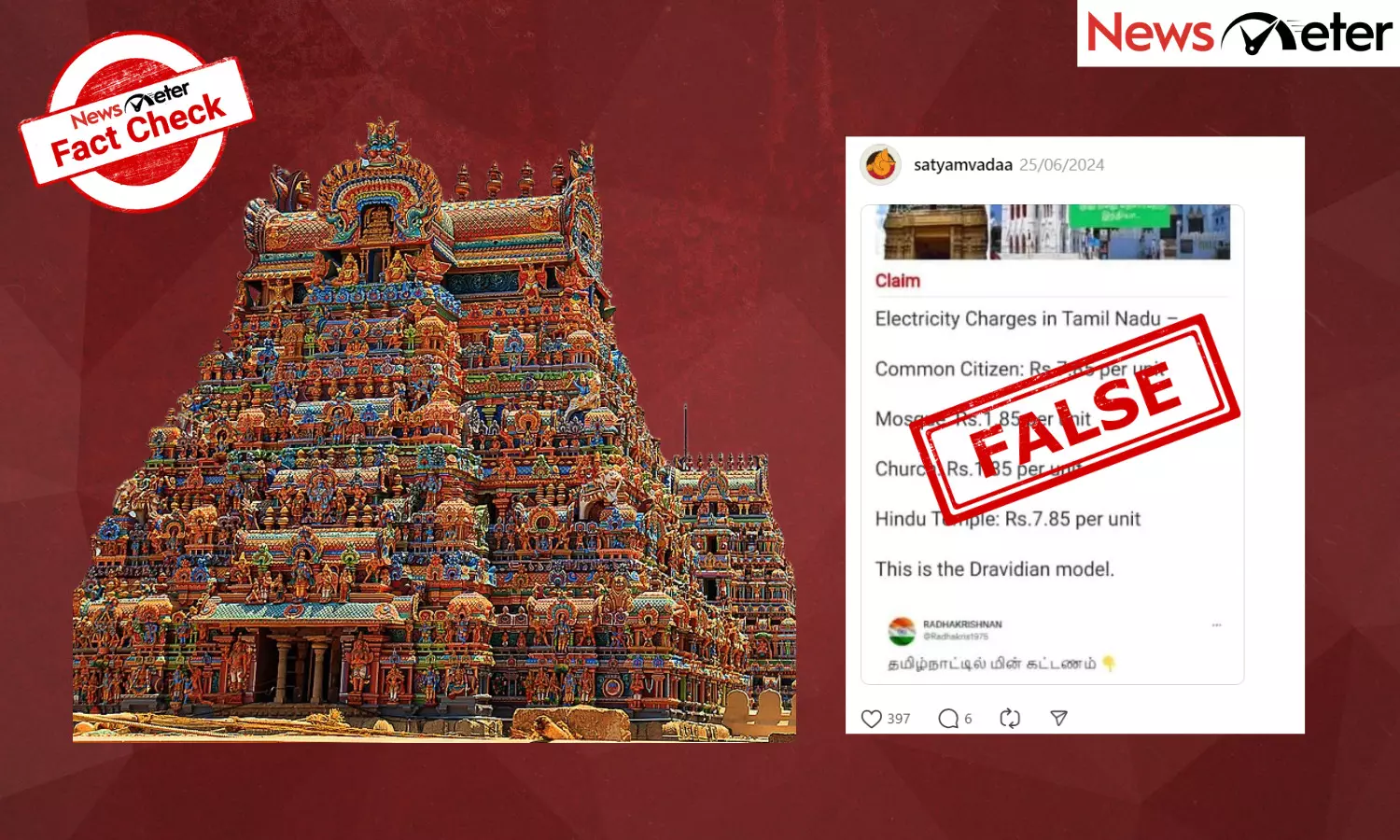Hyderabad: A claim circulating on social media alleges that Hindu temples in Tamil Nadu are being charged higher electricity rates than other public worship spaces such as mosques and churches. A photo comparing the electric charges for temples, mosques, churches and a common citizen in Tamil Nadu is being widely shared.
The image has a purported list of electricity charges in Tamil Nadu. The list has a common citizen paying Rs 7.85 per unit same as a Hindu temple. While mosques and churches only have to pay Rs 1.85 per unit.
A Threads user shared this photo, which is tagged as “the Dravidian model.”
Fact Check
NewsMeter found that the claim is misleading.
We searched the Tamil Nadu Generation and Distribution Corporation Limited (TANGEDCO) website and found uniform electricity charges for all religious places in their ‘Determination of Tariff for Distribution for FY 2023-24’ order.
The tariff schedule shows that both high-tension (HT-II A on page no 17) and low-tension (LT-II C on page no.14) supply rates are the same for all worship places.
Both on page no. 28 (3.1.3.2 - (v)) and on page no. 44 (3.2.9.2), it is clearly stated that ‘actual places of public worship is as defined under the Places of Worship (Special Provisions) Act 1991 viz., Temple, Mosque, Gurudwara, Church, Monastery or any other place of Public religious worship of any religious denomination or any section thereof, by whatever name called’.
However, a keyword search led us to an RTI filed by P Ramesh, district general secretary of Akila Bharat Hindu Maha Sabha Tiruvarur (Temple Security Wing), on December 20, 2019. This was shared by an X user with the caption, “Temples under TN Govt control, Churches and Mosques (no govt control) a special rate of charges for Electricity consumed. Temples not under the control of Govt are treated as ‘commercial establishments’ and charged 60% more. Secularism my foot.”
The RTI revealed that private temples not under the Hindu Religious Endowment Department (HR&CE) are categorized under commercial electricity connections, with rates of Rs 5 for 0 to 100 units and Rs 8.05 per unit above 100 units. According to the RTI, temples under the supervision of the Hindu Religious Charities Department, as well as mosques and churches, will be charged as follows: for 0 to 120 units, the rate is Rs 2.85 per unit, and for units above 120, the rate is Rs 5.75 per unit.
To streamline temple administration and preserve cultural heritage, the government established the Hindu Religious and Charitable Endowments Board in 1927, which evolved through several amendments and led to the creation of a separate government department in 1960. The department manages 36,425 temples, 56 mathas (and 47 associated temples), 1,721 specific endowments, and 189 trusts.
As the RTI dates back to 2019, we found that this rate has since been updated to Rs 8.70 per unit for the commercial category.
Hence the claim is misleading. Only private temples classified under the commercial category are charged more, while all other temples have the same electricity rates as other public worship spaces.
